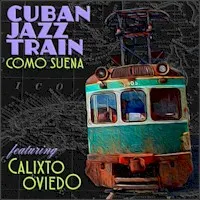Styles: Violin Jazz
Year: 2017
File: MP3@320K/s
Time: 72:07
Size: 166,3 MB
Art: Front
(4:27) 1. Night And Day
(6:16) 2. Fly Me To The Moon
(3:59) 3. Devil May Care
(6:28) 4. What Are You Doing The Rest Of Your Life
(6:08) 5. It's All Right With Me
(6:42) 6. Soul Eyes
(4:46) 7. Samba de Uma Nota Só
(6:38) 8. Yesterdays
(5:31) 9. Bluesette
(5:47) 10. Golden Earrings
(4:33) 11. Les Feuilles mortes
(5:17) 12. Nardis
(5:29) 13. Blue Velvet
The Standard
Year: 2017
File: MP3@320K/s
Time: 72:07
Size: 166,3 MB
Art: Front
(4:27) 1. Night And Day
(6:16) 2. Fly Me To The Moon
(3:59) 3. Devil May Care
(6:28) 4. What Are You Doing The Rest Of Your Life
(6:08) 5. It's All Right With Me
(6:42) 6. Soul Eyes
(4:46) 7. Samba de Uma Nota Só
(6:38) 8. Yesterdays
(5:31) 9. Bluesette
(5:47) 10. Golden Earrings
(4:33) 11. Les Feuilles mortes
(5:17) 12. Nardis
(5:29) 13. Blue Velvet
Born in Kanagawa Prefecture. Began playing the violin at the age of 4 and appearing at the age of 6 at NHK Educational TV "Keiko no Violin". When I was 12 years old, I received an encouragement prize at "Student Music Competition East Japan Convention" sponsored by the Mainichi Newspaper Company. Received again at the age of 14. In 1988, he debuted professionally as a jazz / violinist. Since being co-starred with Kenny • Baron who came to Japan in 1995, he was invited to guests of his album "Things unseen" and recorded for the first time in NY. In 1998, the first leader work "Thinking of You" was announced. In the blink of an eye, it gets notice as a heroine of the jazz world. In January 2001, he won the Jazz Disc Grand Prize "New Star Award" sponsored by Swing Journal magazine. In August 2002, I participated in my 1st "Tokyo Jazz 2002" in my band. The overwhelming performance of becomes a topic. Herbie Hancock invited me to join his session. In February 2003, EMI (now Universal Music) first release "Anthem" was announced. Became a big best seller and received the Japan Gold Award Grand Prize . December, announced the second transfer "Jazz Waltz" announcement. Jazz disc award "Jazz Award" won by swing journal magazine. In April 2004, in the swing journal magazine reader popularity vote, he won three divisions , . Become a top artist in the jazz world with both name and reality. From this year onwards until 2009, serve KINCHO mosquito coil TVCM character. (I will be in charge of music continuously after that) In January 2008, received the 33rd Nanri's Fumio Award. In March 2010, the Agency for Cultural Affairs received the Prize for Art Scholarship Minister Entry Science Minister's Newcomer Award (Grand Prize Division). From May, serve as the first regular personality in the BS - TBS program "Cinemagic Café" (~ 2012). In September 11th, "Tokyo Jazz" celebrating the 10th anniversary, she appeared on the stage entitled "Astor Piazzolla Project" with world accordionist Richard Galliano and performed again etc. The stage live record "Libertango in Tokyo" is also reputed. In January 15, the regular band was renewed for the first time in 12 years, and the latest work "Hot Jazz" was announced. (Translate by Google) https://www.universal-music.co.jp/terai-naoko/biography/
The Standard




















